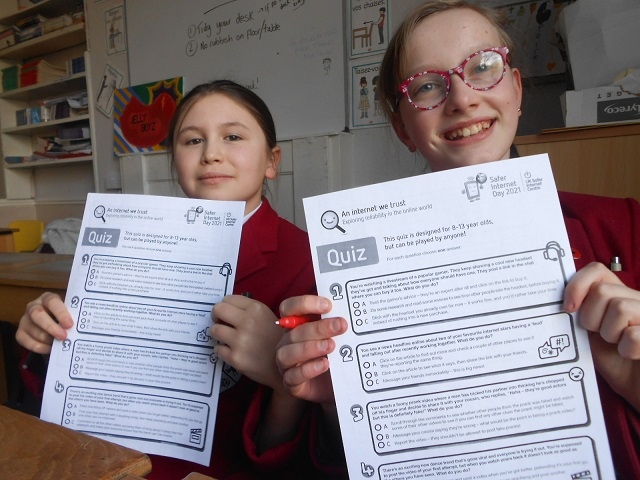Safer Internet Day at Beech House
Date published: 15 February 2021

Safer Internet Day at Beech House
Pupils at Beech House School, Rochdale, marked Safer Internet Day (Tuesday 9 February) with a range of interactive activities designed to help them spot misleading, or false, information online.
Safer Internet Day unites millions of young people, schools and organisations across the UK, to spark conversations around online safety and what to trust online.
Pupils from Year 8 to Year 11 were shown images of influencers and businesses from social media, before it was discussed how to spot misleading information online.
The pupils were then asked to rank specific internet content according to how real or fake they thought it was, before a whole class discussion on their own experiences of fake content online, and how to prevent becoming victims of this in the future.
Year 7 watched an internet safety film on the UK Safer Internet website, then discussed ways how to ensure that they are safe online.
Year 5 and 6 completed a poster which they were working on already. They then completed a crossword puzzle on Safer Internet.
With the younger Year 3 and 4 groups, teachers went through their understanding of the internet and safety, and why the children thought people should be safe when using the internet.
They also viewed a PowerPoint presentation with different scenarios, before responding with what they thought was the right thing to do. They then did a wordsearch on internet safety.
Years 1 and 2 looked at a PowerPoint which told them more about going online and how to keep safe. They then made a poster writing about the ways to stay safe online by following the SMART rules:
Safe: Keep safe by being careful not to give out personal information when you're chatting or posting online. Personal information includes your email address, phone number and password.
Meet: Meeting someone you have only been in touch with online can be dangerous. Only do so with your parents' or carers' permission and even then only when they can be present. Remember online friends are still strangers even if you have been talking to them for a long time.
Accepting: Accepting emails, messages, or opening files, images or texts from people you don't know or trust can lead to problems — they may contain viruses or nasty messages.
Reliable: Someone online might lie about who they are and information on the intemet may not be true. Always check information.
Tell: Tell a parent, carer or a trusted adult if someone, or something, makes you feel uncomfortable or worried, or if you or someone you know is being bullied online.
Do you have a story for us?
Let us know by emailing news@rochdaleonline.co.uk
All contact will be treated in confidence.
Most Viewed News Stories
- 1Royton haulage firm fined after Rochdale dad went to work and didn’t come home
- 2Rochdale church to host Camerados public living room
- 3Unique colour and sound experience comes to Rochdale in May
- 4Suspended council candidate was ‘politically naive’ for appearing in George Galloway video, leader...
- 5Community support needed for funding bid to repair viaduct on East Lancashire Railway route
To contact the Rochdale Online news desk, email news@rochdaleonline.co.uk or visit our news submission page.
To get the latest news on your desktop or mobile, follow Rochdale Online on Twitter and Facebook.


